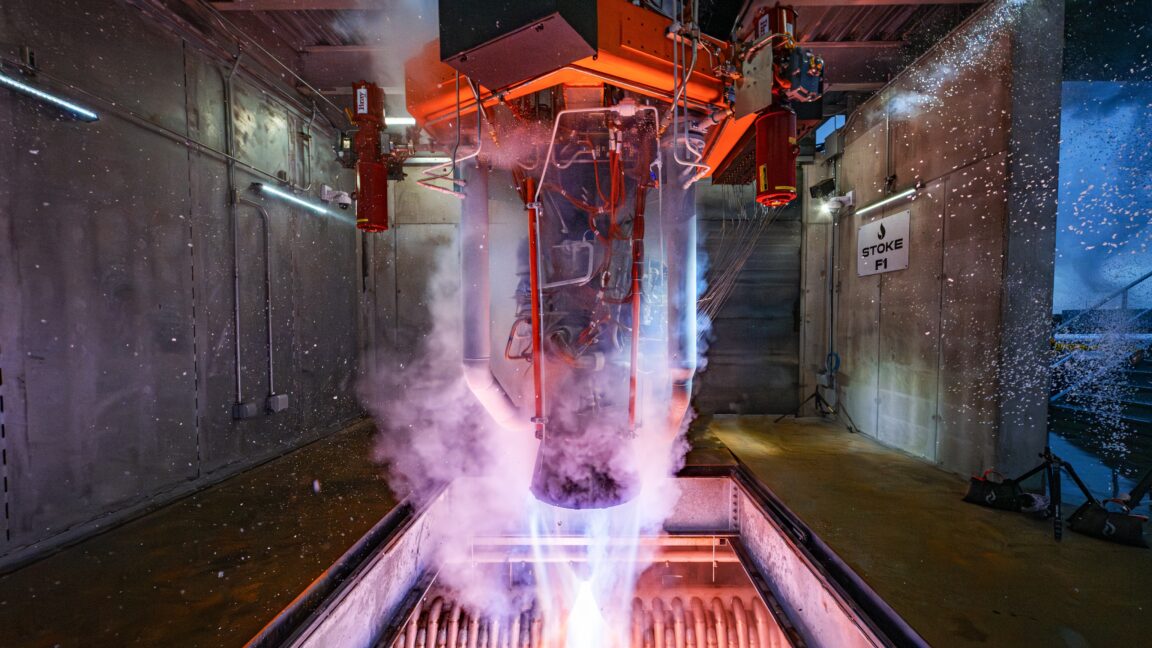Firm developing a fully reusable rocket raises a quarter of a billion dollars
Like a supernova Firm developing a fully reusable rocket raises a quarter of a billion dollars "Its a very different conversation with investors than it was five years ago." Eric Berger Jan 15, 2025 11:54 am | 59 Stoke Space fires up the second version of its main engine in December 2024. Credit: Stoke Space Stoke Space fires up the second version of its main engine in December 2024. Credit: Stoke Space Story textSizeSmallStandardLargeWidth *StandardWideLinksStandardOrange* Subscribers only Learn moreA Washington-based launch company announced Wednesday that it has raised $260 million in Series C funding, a significant capital raise at a time when it has become more difficult for some space companies to attract funding."The market is tough, but I think what were doing is poised to go straight to the end state of the industry, and I think investors recognize that," said Andy Lapsa, Stoke Space's co-founder and chief executive officer, in an interview with Ars after the announcement.By "end state of the industry," Lapsa means that Stoke is developing a fully reusable medium-lift rocket named Nova. The vehicle's first stage will land vertically, similarly to a Falcon 9 rocket, and the second stage, which has a novel metallic heat shield and engine design, will also land back on Earth.Big demand for on-demand launchLapsa said there is incredible demand for launch services and that ultimately, only companies that can offer ultra-low-cost prices and on-demand service will be successful. That's why the company has made difficult technical decisions such as developing a highly efficient full-flow staged combustion engine and a reusable upper stage. SpaceX's much larger Starship rocket is the only other fully reusable rocket in development at this time.Stoke Space has raised $220 million in earlier rounds. The company's new and existing investors in the latest fundraising round include Breakthrough Energy Ventures, Glade Brook Capital Partners, Industrious Ventures, Leitmotif, Point72 Ventures, Seven Seven Six, the University of Michigan, Woven Capital, and Y Combinator. Stoke declined to release a valuation for the company following the latest fundraising efforts.The company continues to make technical progress, Lapsa said.A few weeks ago, Stoke successfully tested the Nova rocket's main engine, Zenith, in a vertical position. Lapsa said the company will probably make one more iterative block change on the Zenith engine before it gets into a "nice, tight" flight configuration. Similarly, the second stage engine has gone through a design upgrade to get it ready for flight. After the engines are complete, the company will assemble a flight vehicle and put it through the final phases of testing.Pads and permittingAt the same time, Stoke is working to complete construction at Launch Complex 14 at Cape Canaveral Space Force Station in Florida and finalize environmental permitting for launches from there."We're pushing really hard to have the pad ready, and it will be activated well before the end of the year," Lapsa said. "And the vehicle will be right there with it."Historically, it's unlikely for a company to move from engine testing to a first orbital launch attempt in the same year, so a Nova debut in 2026 seems more likely. Nevertheless, the new funding from investors signals confidence that Stoke is making credible technical progress on its vehicle development.The space capital market has changed significantly since Stoke was founded by Lapsa and Tom Feldman in 2020. At the time, there were dozens of US launch companies at work on small- and medium-lift vehicles. Today, arguably, there are just half a dozen credible US-based entities developing medium-lift rockets."Its a very different conversation with investors than it was five years ago," Lapsa said.The winnowing of competitors is also a stark reminder of both the technical and financial challenges of operating a launch company.Eric BergerSenior Space EditorEric BergerSenior Space Editor Eric Berger is the senior space editor at Ars Technica, covering everything from astronomy to private space to NASA policy, and author of two books: Liftoff, about the rise of SpaceX; and Reentry, on the development of the Falcon 9 rocket and Dragon. A certified meteorologist, Eric lives in Houston. 59 Comments


